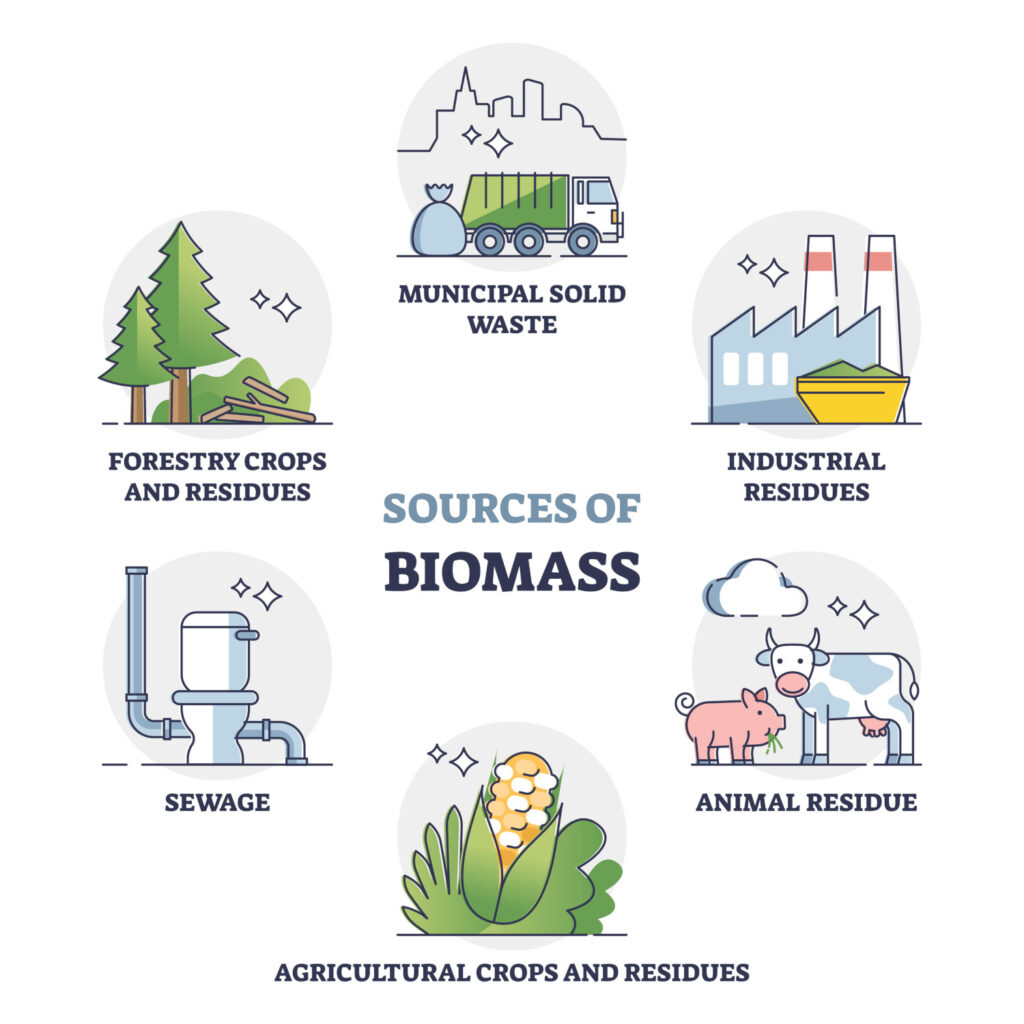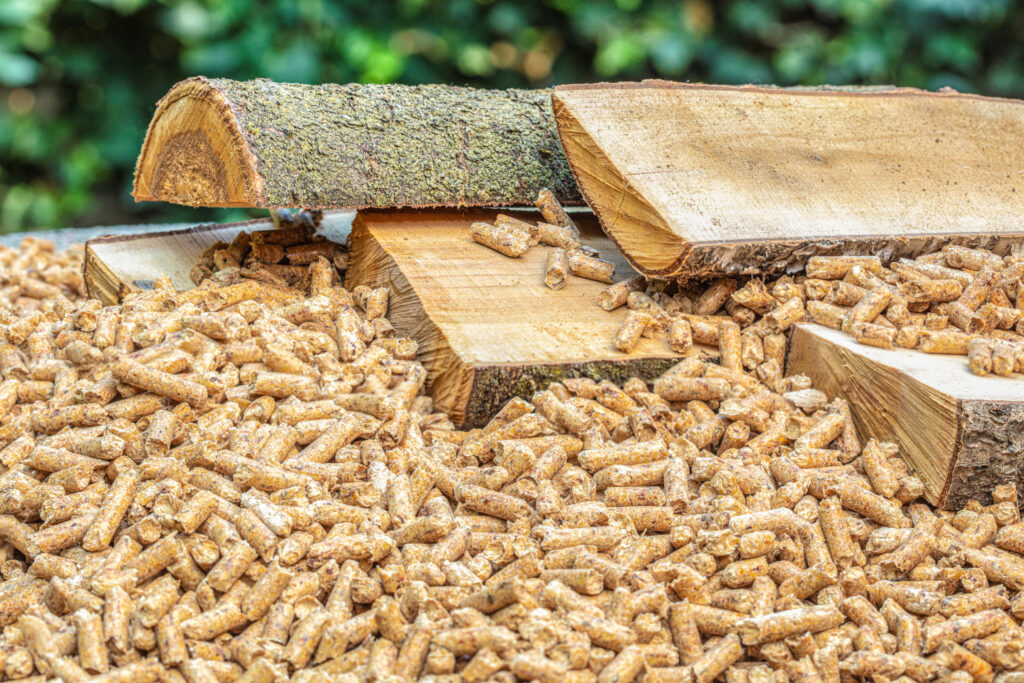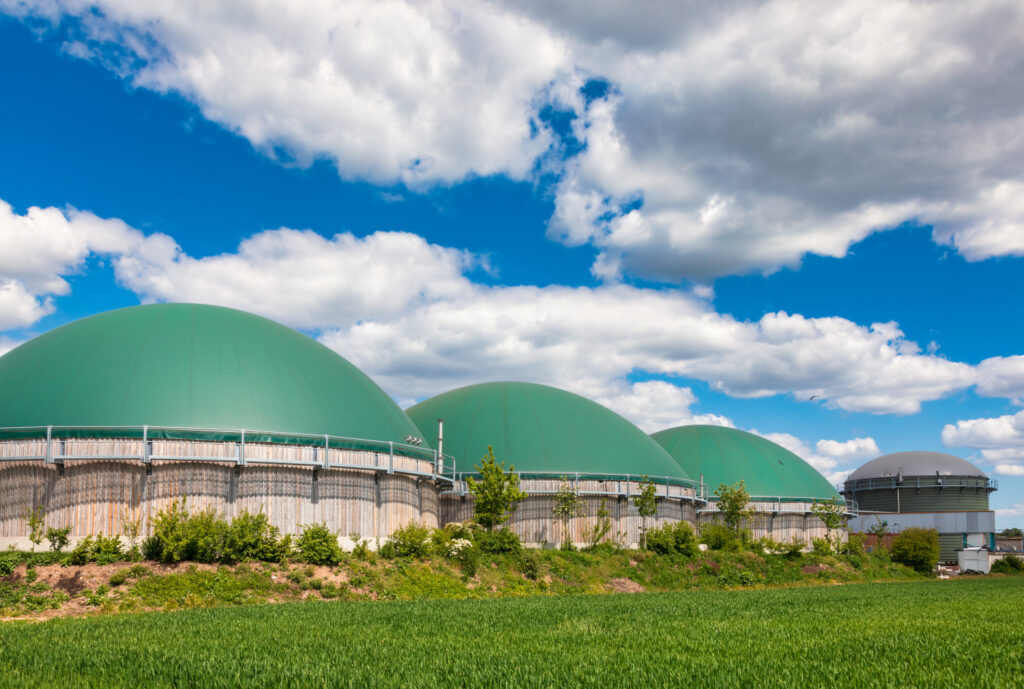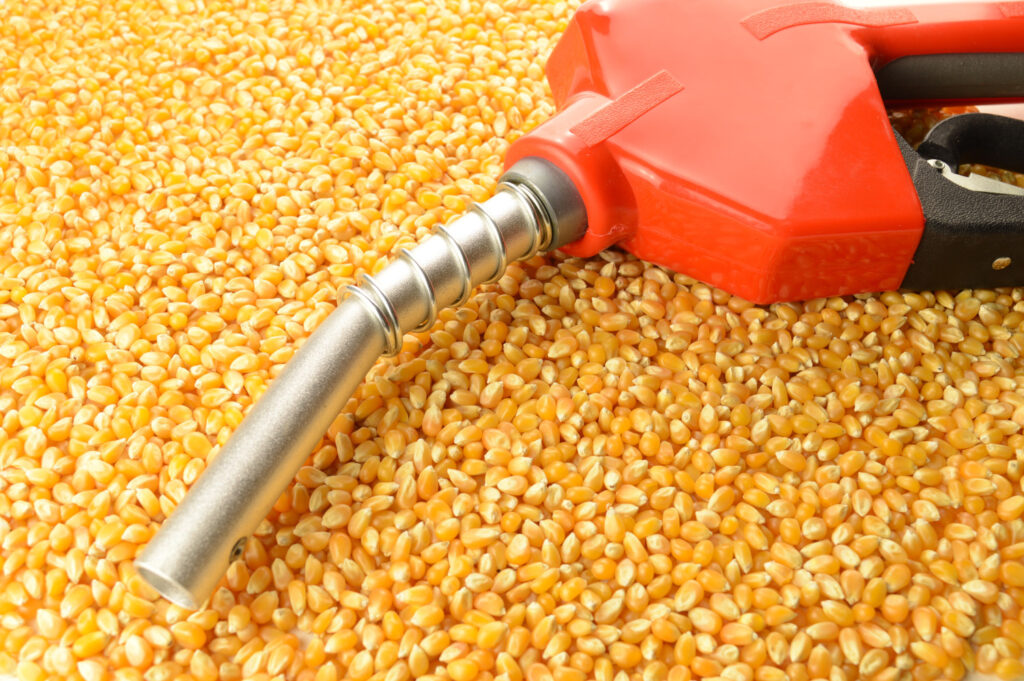
After the sun, biomass is our oldest source of fuel. Ever since man discovered fire we have used wood to warm ourselves and cook our food and in fact wood remains the most commonly used biomass fuel.

So what is biomass? It’s definition is any organic matter that can be used as a source of fuel. Wood and agricultural products, solid waste, landfill gas and biogas, and alcohol fuels (ethanol and biodiesel) all come under the umbrella of Biomass.
All organic matter obtains its energy from the sun. In plants photosynthesis turns sunlight into energy to convert water and carbon dioxide into oxygen and sugar. The plants’ stored chemical energy is released when the resulting biomass (wood, solid waste and gas) is burned and turned into heat or electricity.

Wood, in the form of logs, chips, bark or sawdust, is probably the mostly widely used biomass. Companies that produce these as a by-product of their business are increasingly turning to using the waste they create as a way of heating and powering their premises. Becoming carbon neutral however requires a little more effort on the part of the company than just incinerating their wood waste. Burning wood releases the carbon dioxide the tree soaked up in its lifetime back into the atmosphere; to balance this, more trees must be planted to absorb the CO2 created in the burning process.

It’s not just businesses that are reaping the benefits of their own waste, we all contribute! You probably have a small green food waste bin that you collect all your food scraps and left-overs into and then your local council collects every week. Ever wondered where that food goes? It gets taken to a recycling plant and deposited in an anaerobic digester for processing.
As the food waste rots it produces natural gas which is harvested and used to provide heat and electricity. And what about the food we actually consume? That too can be used as fuel! Once we have digested it and used it as a source of personal energy, the resulting waste is collected at sewage treatment plants. After treatment, the water is removed and the raw sewage becomes rather a lot of brown sludge. Daldowie fuel plant, near Glasgow, is one of the world’s largest plants of its kind, processing about 2.5 million tonnes of the brown sludge every year and turning it into dry, low-odour fuel pellets, a renewable low carbon form of biomass fuel. Not necessarily where you want to imagine your toast and marmalade ending up as you are eating your breakfast but it’s good to know that it goes on giving long after you have enjoyed it.

The other main source of biomass fuel is from crops specifically grown to produce biofuel. In 2019 the UK used 96 thousand hectares of land to grow crops for bioenergy. This is just over 1.6% of the UK’s arable land. 20% of this land was used for biofuel (biodiesel and bioethanol) and the remainder used mainly to produce heat and power. Of course, while that land is growing crops to produce biofuel, it is not available for food crops or pastures. As with many forms of renewable energy it is a balancing act to make sure all needs are being catered for and that the solutions to discontinuing our reliance on fossil fuels are not creating further problems for our future generations.

As we have discussed in our recent blogs on renewable energy and the ‘Green Generation’, these advances in the use of biomass offer another wealth of job opportunities for graduates. The industry, which is still in relative infancy, requires a plethora of chemists, microbiologists, biochemists, agricultural specialists, engineers, technologists, project managers . . . the list goes on. And of course, there are also the off-shoot businesses that will be springing up around the production of biomass fuel. If you don’t mind an industry that can be a little smelly in places, or you like planting trees to off-set your carbon production, this might just be the career path you have been looking for.
We make your life easier by managing your recruitment process for you, using our expertise and proven methods.
If we can help you to find the right candidate for your role, please get in touch with us today.